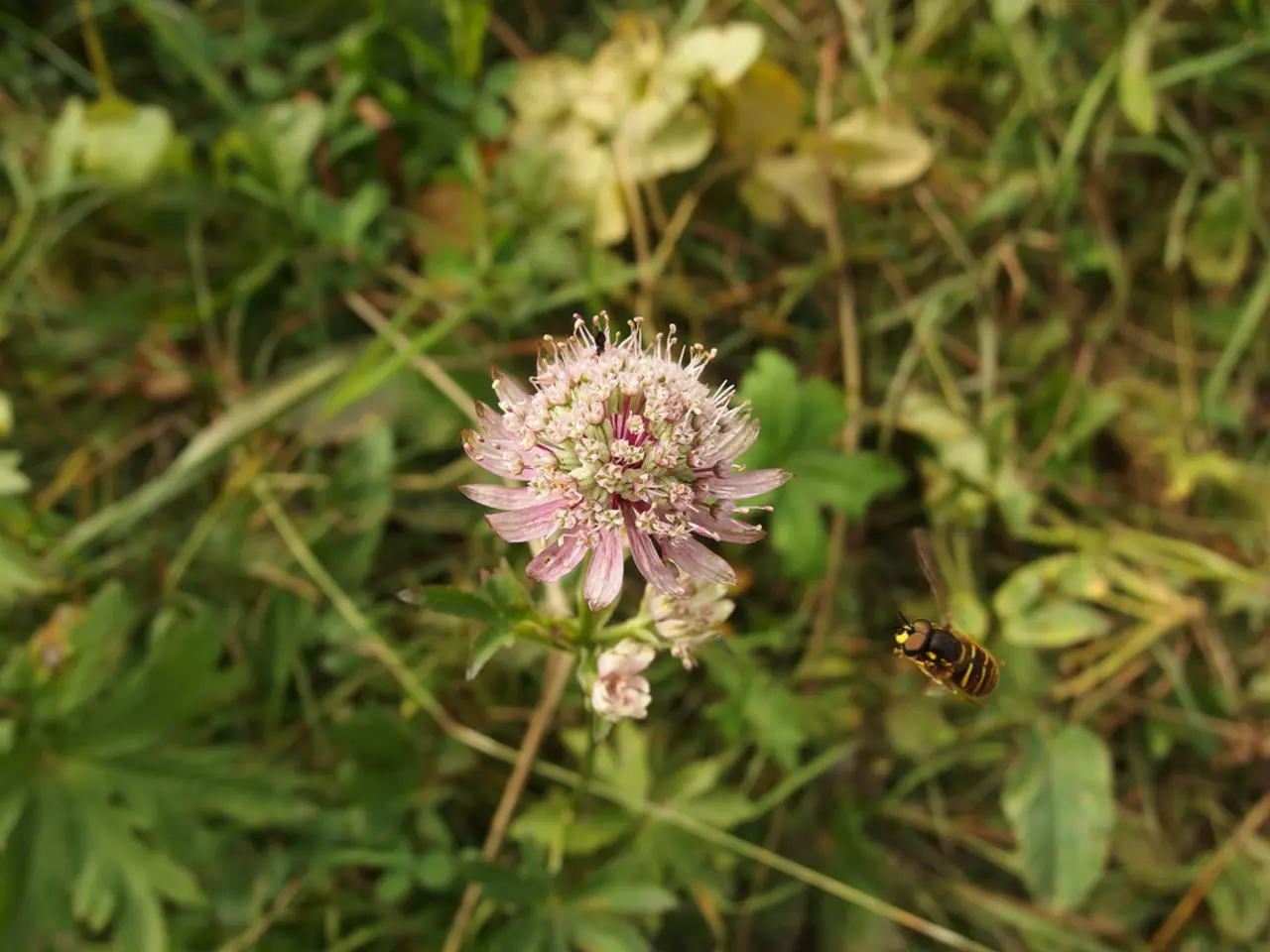Practical strategies for controlling pests in gardens using natural methods
In the world of gardening, organic pest control has gained significant attention as a sustainable and eco-friendly approach to maintaining a flourishing vegetable garden. This method offers numerous benefits, such as healthier plants, safety for kids and pets, environmental protection, and sustainable practices.
Organic pest control supports the long-term health of the garden and soil through sustainable practices. By employing strategies like companion planting, crop rotation, and maintaining healthy soil with organic fertilizers, gardeners can suppress pest populations naturally without harming beneficial organisms or soil health.
One effective organic pest management strategy is attracting beneficial insects, such as ladybirds, lacewings, hoverflies, and parasitic wasps, which help control pests like aphids, caterpillars, and whiteflies by natural predation. Planting nectar-rich herbs and flowers like coriander, dill, fennel, and marigolds around vegetable beds draws these allies to the garden.
Companion planting with pest-repellent plants like marigold, basil, and lemongrass confuses and deters pests, while crop rotation breaks pest life cycles by preventing pests from establishing in the same location repeatedly. Favourite companion planting combinations include tomatoes and basil, carrots and onions, cabbage and dill, and beans with corn.
Maintaining healthy soil through organic fertilisers like compost, vermicompost, and aged manure strengthens plants’ natural resistance to pests and diseases. Organic soil practices foster soil biodiversity and beneficial microorganisms, creating a robust ecosystem less prone to infestations.
Homemade organic sprays, such as neem oil, soap sprays, and garlic-chili water, provide targeted control of pests without chemical residues. Additionally, physical methods like removing dead foliage, avoiding overwatering, and cleaning garden debris reduce pest habitat.
By understanding organic pest control methods, utilising companion planting, and employing Integrated Pest Management, one can maintain a thriving vegetable garden without relying on harmful chemicals. Healthier plants with organic pest control are fewer chemicals and stronger, contributing to a sustainable gardening practice that protects the environment.
Organic pest control methods, such as using beneficial insects, plants, and homemade sprays, offer a balanced and eco-friendly approach to managing pests in a garden. This method aligns well with sustainable agriculture principles, promoting long-term resilience of vegetable gardens and preserving ecosystems for future generations.
- The practice of gardening can extend beyond just home-and-garden tasks to include health-and-wellness aspects, as certain vegetables grown organically can have health benefits for medical-conditions and skin-conditions.
- Adopting a lifestyle that includes organic pest control in the garden can contribute to overall health and wellness, not only for the cultivated plants but also for the environment.
- Employing organic pest control methods at home, such as attracting beneficial insects and using homemade organic sprays, can be an effective step towards sustainable living and gardening practices.
- By adhering to organic pest control principles in the garden, one can support not only personal health and wellness but also contribute to the preservation of ecosystems for future generations and the promotion of sustainable living.



